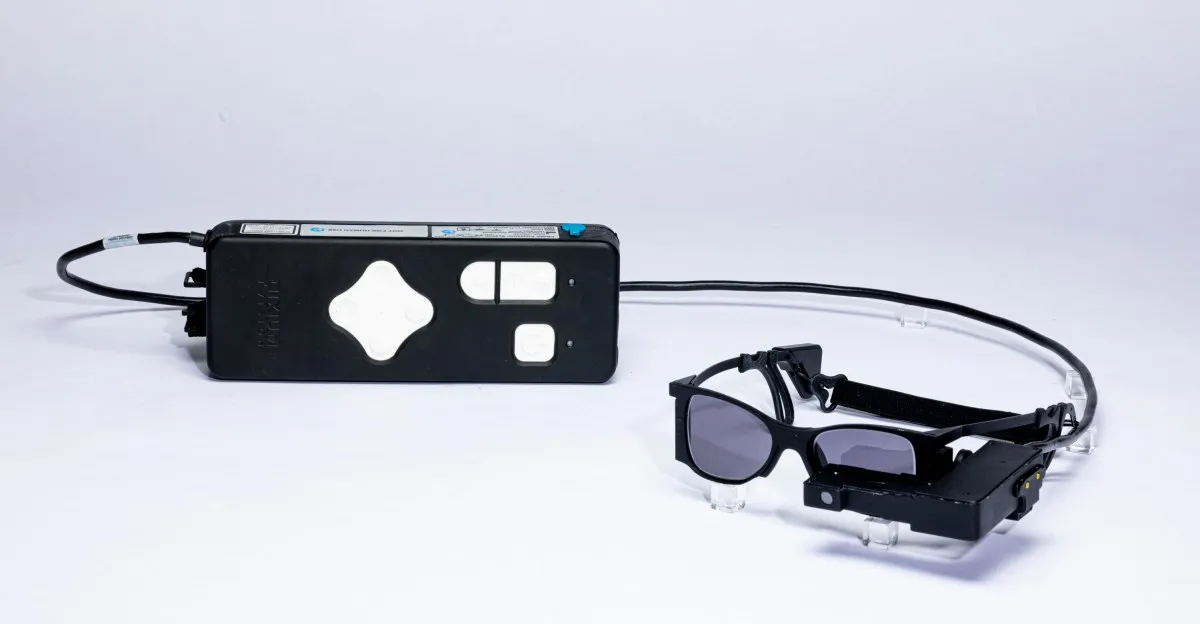
In a groundbreaking study published in The New England Journal of Medicine, several dozen patients suffering from vision loss due to a progressive form of blindness known as age-related macular degeneration (AMD) have regained some central vision. This innovative approach utilizes a specialized eye implant combined with advanced smart glasses, allowing participants to engage in activities like filling out crossword puzzles and reading regular books once again.
Age-related macular degeneration (AMD) is a leading cause of vision impairment, particularly among individuals aged 60 and older. This condition results in the gradual death of cells in the center of the retina, leading to irreversible vision loss. In this recent study, researchers aimed to restore some of the lost vision in patients with diagnosed AMD in both eyes, all of whom exhibited significant visual impairment, with a measured visual acuity of at least 1.2 logMAR or worse in the study eye.
The core of the study focused on a 2-by-2-millimeter retinal implant composed of tiny photovoltaic solar panels. This device is surgically implanted under the retina, serving as a bridge to restore visual function. Patients equipped with camera-enabled smart glasses are able to capture zoomed-in images of their surroundings. These images are then transmitted to the retinal implant using near-infrared light, which subsequently sends small electrical signals to the optic nerve, mimicking the natural function of retinal cells.
The clinical trial began with 38 participants who received the retinal implant, and 32 remained throughout the year-long study. Remarkably, by the end of the trial, 26 of the 32 participants demonstrated improved vision compared to their baseline, resulting in an impressive 80 percent success rate. While the restoration of vision is not perfect—patients experience only a blurry view of the world in black and white—the results have been hailed as “amazing” by researchers not directly involved in the study, as reported by The New York Times.
The retinal implant technology stems from the innovative efforts of Science Corporation, a brain-computer interface company founded by Max Hodak, who co-founded Neuralink with Elon Musk in 2016. In 2024, Science Corporation acquired the retinal implant technology from the French medical device company Pixium Vision, which had faced financial difficulties after a decade of development. This acquisition allowed for the continuation of clinical trials and further advancements in vision restoration technology.
The success of this clinical trial marks a significant step forward in the field of vision restoration for patients with AMD. As the technology continues to evolve, researchers are hopeful that further refinements will enhance the quality of vision restoration, potentially offering a lifeline to millions affected by this debilitating condition. The collaboration between innovative companies and the ongoing research efforts highlight the promise of technology in addressing serious health challenges.